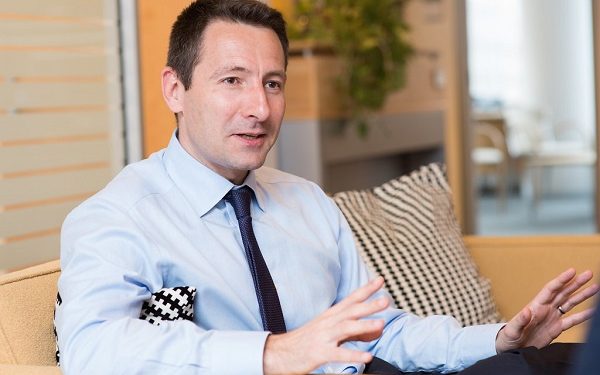The International Monetary Fund (IMF) has asserted that indeed Ghana’s energy sector presents the most significant threat to the nation economically.
The IMF Mission Chief for Ghana, Stéphane Roudet reiterated the Fund’s persistent concerns over the sector’s financial weaknesses, noting that energy sector reform remains a key pillar of Ghana’s IMF-supported program.
Speaking to Ghanaian journalists during the recently concluded IMF Spring Meetings in Washington, D.C., Roudet underscored the importance of addressing the gap between the revenue collected by the Electricity Company of Ghana (ECG) and the actual cost of electricity production, a long-standing issue since the start of the program.
“We knew from the beginning of the program that there were challenges related to the energy sector. The main challenge is that you have a large difference between what ECG can collect in terms of bills and the costs that are generated in the sector, that’s what we refer to as the energy sector shortfall,” he noted.
This position comes to confirm the stance of Finance Minister, Dr. Cassiel Ato Forson.
Dr. Forson earlier indicated that the energy sector is burdened with a financial shortfall of approximately $2 billion, an amount that surpasses the nation’s domestic capital expenditure.
He made this revelation during a deep-dive session on the Ghana Energy Compact under Mission 300 at the WorldBank.
Dr. Forson emphasized the urgent need for comprehensive reforms in the energy sector. He warned that the size of the deficit exceeds the country’s total domestic capital expenditure and cannot be addressed by tariff adjustments alone.
“The problem is not just tariffs. The inefficiencies, especially in the distribution sector, are being passed on to the ordinary Ghanaian, making electricity costs unnecessarily high,” he stated.
Dr. Forson pointed out that the Electricity Company of Ghana (ECG) could significantly reduce the shortfall if operational inefficiencies were tackled. According to him, resolving these issues could cut the deficit by half.
As part of efforts to revamp the energy sector, the Minister revealed that Cabinet has approved private sector participation in energy operations. In addition, a Legislative Instrument has been laid before Parliament to allow for competitive procurement in power generation services.
Describing the Ghana Energy Compact as a timely and strategic intervention, Dr. Forson urged for its swift implementation.
“The compact has come at the right time. It will in the long run assist Ghana, and we are praying the process is not delayed,” he said.
He called for urgency, stressing that further delays could worsened the nation’s economic challenges.
“Time is of the essence. We must act quickly if we are to prevent further damage to our economy and improve the lives of Ghanaians,” Dr. Forson added.
See post:
During a deep-dive session on the Ghana Energy Compact under Mission 300 at the WorldBank Yesterday, I reiterated that Ghana’s energy sector is currently the biggest economic risk we face.
The sector is burdened with a financial shortfall of approximately $2 billion. This amount… pic.twitter.com/czW9Ypds8Y
— Cassiel Ato Forson(PhD) (@Cassielforson) April 23, 2025

